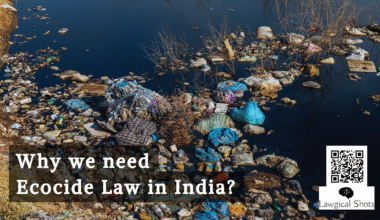Children are a reflection of innocence, still in the making, step-by-step learning various things about life. The innocent souls sometimes become the targets of grown ups with evil minds. Rather than looking at their twinkling eyes, pedophiles look at children as sexual objects. The Protection of Children from Sexual Offences Act, 2012 – POCSO Act seeks to lay the legal structure for trial of sexual offences committed against children. Some people still confuse the POCSO Act with POSCO Act, or POXO Act, and that is why knowing the POCSO Act full form is important for everyone. To keep it simple and absorb what the POCSO Act lays and delineates the vulnerability of victims through specific actions, here is another legal blog!
The Protection of Children from Sexual Offences Act, 2012 – A Preface
POCSO Meaning
To understand the meaning, knowing the POCSO Act full form is crucial. POCSO stands for Protection of Children from Sexual Offences. The Protection of Children from Sexual Offences Act, 2012 aims to protect children from offences of sexual assault, sexual harassment and pornography and provide for establishment of Special Courts for trials. The POCSO Act in its essence restricts or prevents the:
- inducement or coercion of a child to engage in any unlawful sexual activity;
- exploitative use of children in prostitution or other unlawful sexual practices; and
- exploitative use of children in pornographic performances and materials
POCSO Age Limit
Section 2(d) of the Protection of Children from Sexual Offences Act, 2012 defines a child as any person below the age of 18 years. Thus, anyone who is yet to attain the age of majority is a child. Any sexual offence committed against a child is punishable under the POCSO Act, whether it is a boy or a girl.
Here, it may be noted that the POCSO age limit does not discriminate between males and females. Both are said to be victims of sexual offences. So is not the case with the Bharatiya Nyaya Sanhita, which deals with sexual offenses against adults, particularly women.
Important POCSO Act Sections
The most important provisions or sections of POCSO Act are those which define the specific offences. The same have been explained here under:
Offences under Protection of Children from Sexual Offences Act
- Penetrative Sexual Assault – Any kind of penetration into the vagina, mouth, urethra or anus, penile or otherwise, constitutes penetrative sexual assault. Applying moth to any of aforementioned body parts of a child is an offence under Section 3 of the POCSO Act. It is punishable with imprisonment of minimum 10 years or life imprisonment with fine. In cases where the victim is below 16 years, the minimum punishment goes 20 years. The provision states about fine to be used for the victim’s medical expenses and rehabilitation.
- Aggravated Penetrative Sexual Assault – While the act remains the same as previous one, who commits it aggravates the incident. If penetrative sexual assault is caused by a police officer, someone from army/security forces, public servant, staff/management of a jail/remand home/ protection home/ observation home/ hospital/ educationalor religious institution, or gang penetrative sexual assault, it falls under Section 5 of POCSO Act. If such assault is caused by deadly weapons, fire, heated/corrosive substance, causing hurt or injury to the sexual organs of the child, that also counts as aggravated penetrative sexual assault.
If such an act incapacitates the child or makes him/her mentally ill, impregnates her, inflicts HIV or any other life threatening disease, renders physically impairment or mental illness, or causes death, it is also punishable. Those taking advantage of a child’s mental or physical disability, repeated assault, those in family relations, or any authorised person around the child are squarely punishable for the heinous act.
Section 6 lays the punishment for aggravated penetrative sexual assault. It attracts rigorous imprisonment of minimum 20 years, extendable to the remainder of natural life, with fine. Death penalty may also be imposed in such cases.
- Sexual Assault – The Section 7 of the Protection of Children from Sexual Offences Act, 2012 defines what constitutes sexual assault against a child. If someone touches the vagina, penis, anus or breast of the child or makes the child touch the vagina, penis, anus or breast of another, or any physical contact with sexual intent constitutes sexual assault. It may be noted that for sexual assault under POCSO Act, inappropriate touch with sexual intent is enough to constitute an offence. However, in practice, proving presence or absence of sexual intent is challenging for the Prosecution.
Section 8 of the Act lays the punishment for sexual assault against a child. It attracts imprisonment of 3 to 5 years along with fine.
- Aggravated Sexual Assault – As seen for penetrative sexual assault turning aggravated because of who did it, or how serious consequences were brought to the physical or mental health of the victim child, similar is the case for aggravated sexual assault. If the perpetrator is a police officer, army/security personnel, staff member of an institution like jail, hospital, etc., or a family member, the inappropriate touch with sexual intent turns aggravated sexual assault. The consequences squarely attract when there is harm to mental or physical health of the child. The detailed acts of sexual assault have been defined under Section 9, while Section 10 of the Protection of Children from Sexual Offences Act lays its punishment. The imprisonment goes from 5 to 7 years, with fine.
- Sexual Harassment – What constitutes sexual harassment under POCSO Act often confuses people. As per Section 11 of POCSO Act, words/sound/gesture or exhibiting any object or body part with sexual intent, to be seen or heard by a child is sexual harassment. If the child is made to exhibit a body part to be seen by others, or the child is shown any media for pornographic purposes, that again is sexual harassment.
As per Section 12 of POCSO Act, the punishment for sexual harassment is imprisonment up to 3 years along with fine.
- Using child for Pornographic Purposes – Any kind of media using a child for sexual gratification is an offence as per Section 13 of the Protection of Children from Sexual Offences Act, 2012. It includes representation of sexual organs of a child, child engaged in real or simulated sexual acts, indecent or obscene representation of a child. For the purpose of using a child for pornographic purposes, the said medium could be print, electronic, computer or any other technology for preparation, production, offering, transmitting, publishing, facilitation and distribution of the pornographic material.
The punishment for using a child for pornographic material under POCSO Act is minimum 5 years, which goes up to minimum 7 years for subsequent conviction, along with fine. If along with the media, the child is being subjected to other acts like sexual assault/harassment, or penetrative acts, the punishment for respective offences attracts. It may be noted that storing child pornographic material is also punishable with a fine of Rs 5000, and subsequently Rs 10,000. Use of such material for transmitting or propagating or displaying or distributing is punishable with imprisonment up to 3 years with fine. In fact, using or storing it for commercial purposes is even a grave offence and punishable with 3 to 5 years of imprisonment with fine. For subsequent acts, the punishment goes up by 5 to 7 years of imprisonment.
- Abetment of POCSO Offence – Section 16 of the Protection of Children from Sexual Offences Act, 2012 makes abetment of an offence punishable. Instigating, engaging with one or more persons to conspire, or intentionally aiding the commitment of an offence under POSCO Act constitutes abetment under Section 16. It includes misrepresentation, concealment, facilitation, harbouring, threatening or transporting a child, or coercing/abducting, giving or receiving payments, etc. for the purpose of an offence.
Section 17 of POCSO Act punishes abetment of an offence under the Act with punishment provided for that offence.
- Attempt to commit POCSO Offence – Anyone who attempts but fails to commit an offence under the Protection of Children from Sexual Offences Act, 2012 is punishable with imprisonment provided for the said offence.
Key Highlights on POCSO Act
The key aspects related to the Protection of Children from Sexual Offences Act, 2012 are as follows:
- Being termed as the Act 32 of 2012, the POCSO Act was enacted on June 19, 2012 and came in force on November 14, 2012, marking Children’s Day.
- The Act is in furtherance of India’s accession to the Convention on the Rights of the Child, adopted by the UN General Assembly.
- There are 46 Sections, embraced in 9 Chapters.
- The Act defines sexual offences against children, procedure for reporting cases, recording statements, etc.
- Special Courts and Special Public Prosecutors are designated for trial in POCSO Cases. The powers and procedures of Special POCSO Courts are also laid under Chapter 7 of POCSO Act.
- While it is a strong legislation, the Protection of Children from Sexual Offences Act, 2012 further lays about public awareness.
- The broader aim of the POCSO Act is to protect children from sexual offences.








